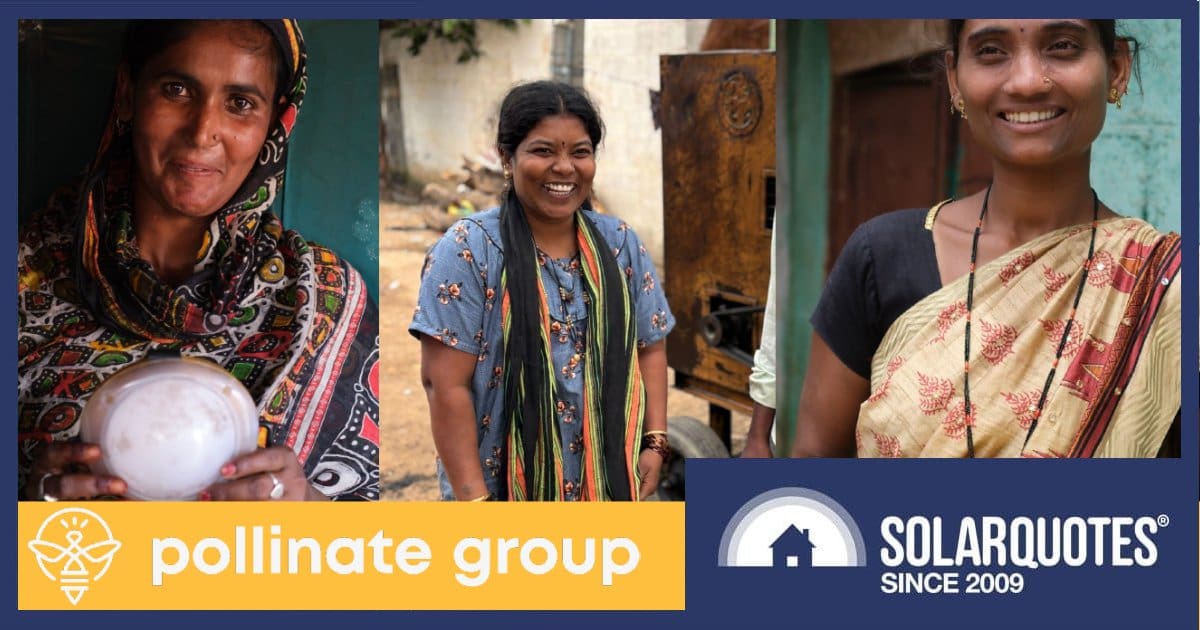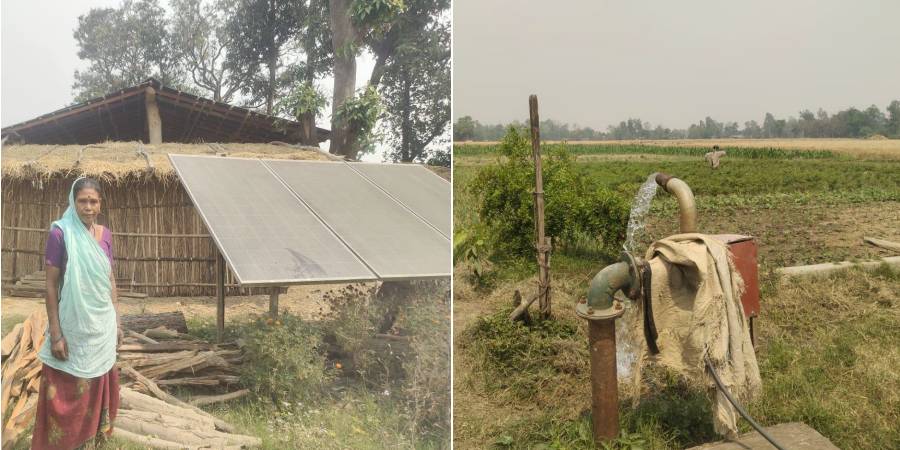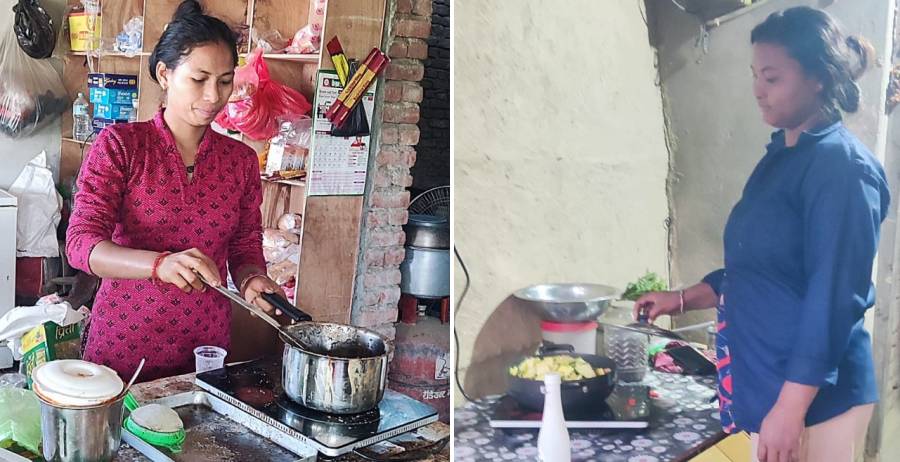
Some of the world’s poorest communities are replacing dirty diesel generators and wood-fired stoves with solar water pumps and induction cooktops, thanks to the efforts of Melbourne-headquartered social enterprise Pollinate Group.
Pollinate Group was founded in 2012 by six young Australians who were wanting to address energy poverty in Bangalore, India. The group has since broadened its network to more regions in India, and across the border into Nepal.
In India and Nepal, many households still lack access to dependable (or any) mains electricity; instead relying on expensive, dangerous and polluting kerosene lighting and diesel/petrol generators. Pollinate Group is helping tackle this by empowering marginalised women as entrepreneurs, who they call “Suryamukhis” (meaning “sunflowers”). Pollinate provides these women training, support and affordable sustainable household products such as solar lights that the Suryamukhis sell within their local communities.
Pollinate Group has supported more than 2,400 women in India and Nepal to distribute 340,000 products to date; creating income for the entrepreneurs and saving their customers collectively many millions of dollars. SolarQuotes has been a supporter of the organisation for nearly 6 years; but more on that in a bit.
While Pollinate’s original focus was on solar lights and micro off-grid systems, the social enterprise has been expanding the range of solutions on offer.
Solar Water Pumping – Nepal
Currently underway in Nepal, Pollinate has been undertaking a solar water pump project; giving farmers access to cheaper and more environmentally friendly solutions than conventional diesel and electric water pumps. 18 solar powered water pumping systems have been successfully installed in various Nepalese regions to date.
One of these projects was carried out on Sushma Chaudhary’s family farm, which was reliant on a diesel-powered pump. Previously, Sushma faced challenges with not only the cost of diesel, but procuring it; often having to wait in long queues for the fossil fuel. Sushma also found she frequently had to rely on male family members or neighbours for assistance in operating the pump.
“However, with the introduction of the solar water pump, Sushma’s farming practices have been revolutionized,” says Pollinate. “No longer tethered to the fluctuations of diesel prices or dependent on others for operation, Sushma now enjoys newfound autonomy and efficiency in managing her irrigation needs.”

Sushma has enjoyed significant savings thanks to her solar water pump.
The financial benefits have been significant, saving Sushma NPR 55,000 (~AUD $635) annually that was previously spent on diesel. And thanks to increased productivity the solar water pump has provided, her annual earnings have jumped by NPR 200,000 (~ AUD $2,309).
Induction Cooktop Project – Nepal
The Induction Cooking Project provides electric induction cooktops and utensils at subsidised rates, with the aim of promoting cleaner cooking alternatives to traditional fuels including wood, animal dung and agricultural waste.
Hira Chaudhary runs a snack shop and was intrigued by the induction cookstove, which she used to prepare milk tea for her customers. That led her to introduce her customers to the technology and within two months she had doubled her income. Hira’s mother-in-law now manages the shop while Hira goes out to promote the stoves and accessories in nearby villages.

Hira Chaudhary (L) and Soni Chaudhary (R) using induction cooktops.
For Soni Chaudhary1, one of Hira’s customers, the induction cooktop has literally been life-changing. Previously Soni would spend an entire day each week in the jungle collecting firewood. Aside from the time and energy spent, she was at risk of wild animal attacks; and the continued exposure to smoke from firewood cooking was having a negative impact on her and her family’s health.
More than 6,000 induction cooktops have been distributed to households through Pollinate Group’s project in Nepal so far.
Both the solar water pumping and induction cooktop initiatives have been supported by Electricité Sans Frontières (ESF) and Empower By Light (EBL), which provide a subsidy to customers.
USAID Freeze Impact
The U.S. Agency for International Development (USAID) is the principal agency in the United States extending assistance to countries for disaster recovery, efforts to escape poverty and to implement democratic reforms; a role it has been playing for decades. But the Trump Administration recently gutted the agency. We asked Pollinate Group what the impact has been and will be on their efforts.
“Ultimately a lot of people will be pushed into poverty and developing countries will be less stable,” said Pollinate Group Philanthropy Manager Joe Manger. “While Pollinate Group hasn’t been directly impacted by a reduction in funding, we expect to see a range of negative outcomes to the living standards in the communities we operate in.”
Mr. Manger says there will likely be a reduction in the number of partner NGOs available to work with, limiting the Group’s ability to scale quickly in new Nepalese communities. India has a more robust economy and more economic opportunities, so the impacts are likely to be less in the short term.
“We will however see a reduction in the ability of communities to afford products like ours as they are forced to use what little income on basic living essentials. In addition, the global funding landscape will get significantly more competitive as organisations previously reliant on government funding sources look to private philanthropy and the private sector to help make up some of the gap.”
If you can spare a few bucks to help Pollinate Group in its efforts, you can donate here.
And on that note …
SolarQuotes Partnership Progress
In 2019, SolarQuotes committed to donate $1 to Pollinate Group for every genuine quote submitted – and SQ is still doing so today.
We recently received an update from the Group about the positive impact that commitment has had. The highlights:
- $383,437 donated since 2019.
- 767 female entrepreneurs supported.
- 18,407 solar lights distributed.
- AUD $8 million saved.
- 103,081 people reached.
- 481,721 tonnes carbon dioxide equivalent (CO2E) avoided.
To everyone who has submitted for a quote through SolarQuotes since this initiative began, take a bow; you’ve contributed to this amazing result!
Footnotes
- Chaudhary is the most common surname in Nepal. ↩

 RSS - Posts
RSS - Posts



A 30 day trip to Nepal region in 2012 saw us walking very remote areas in the far NE of the country, up near the Tibet / India border.
The places we stayed with families etc were eye opening, with most having a very basic 1 or 2 old solar panels and a 12v battery in the roof storage mezzanine giving them basic power for a few 12v globes in a dwelling.
Where we were there were no water issues, but I imagine down on the lower regions flat country south of the Himalaya nearer to India could be a different story.
The panels in the photo 1/3 down the page could do with a quick wash down 🙂